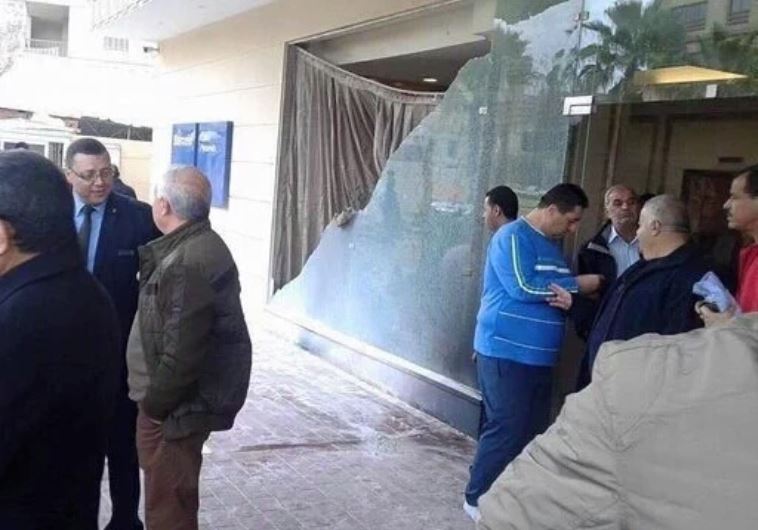ISIS claims attack on Israeli tourists in Cairo
Islamic State says shooting at bus was response to leader's call to target Jews.
 Smashed window after gunmen in Cairo opened fired at a group of tourists boarding a bus(photo credit: ARAB MEDIA)Updated:
Smashed window after gunmen in Cairo opened fired at a group of tourists boarding a bus(photo credit: ARAB MEDIA)Updated: